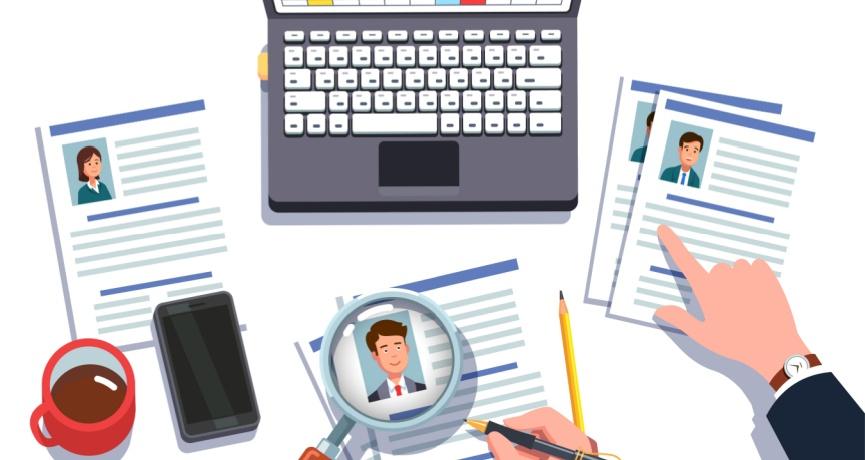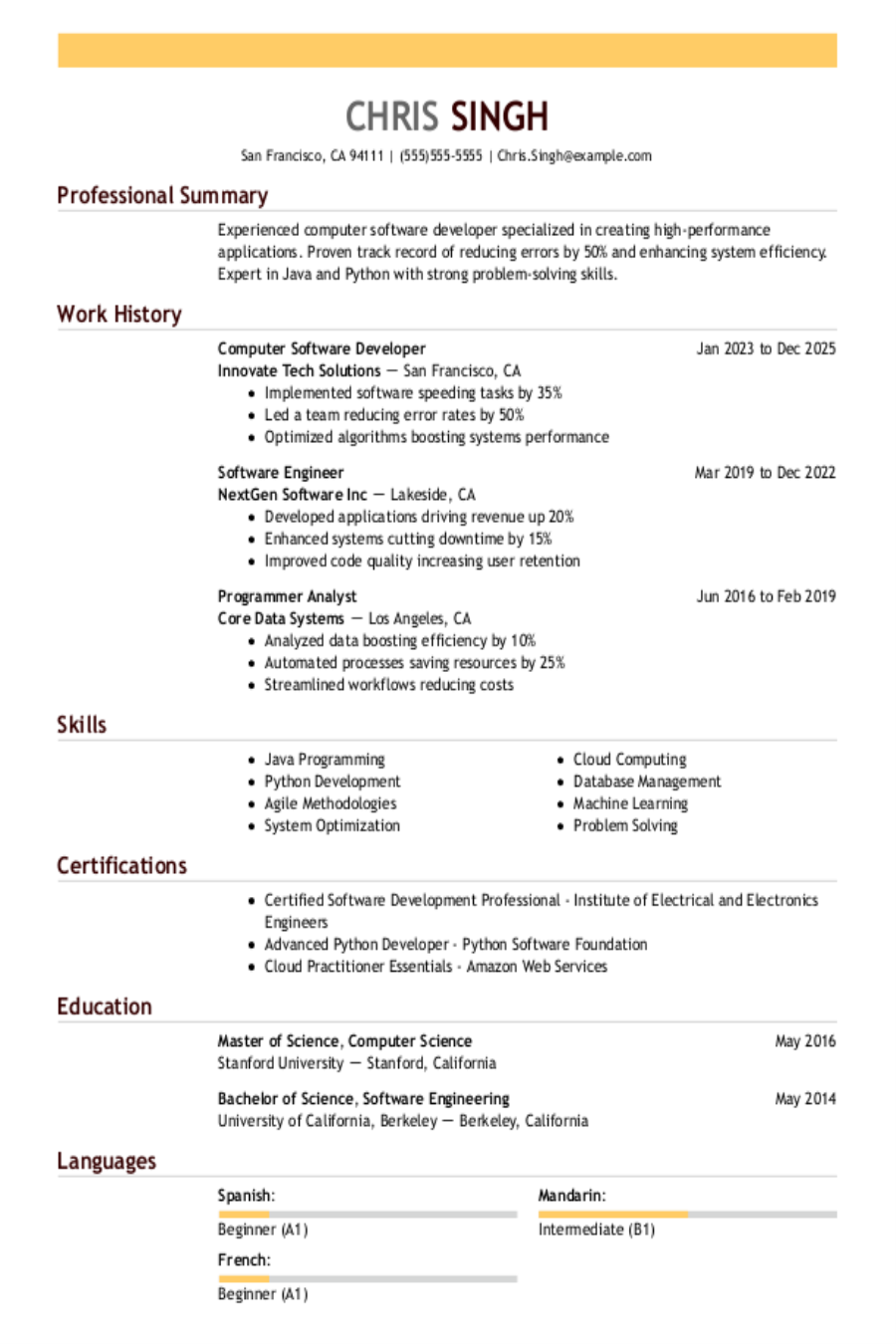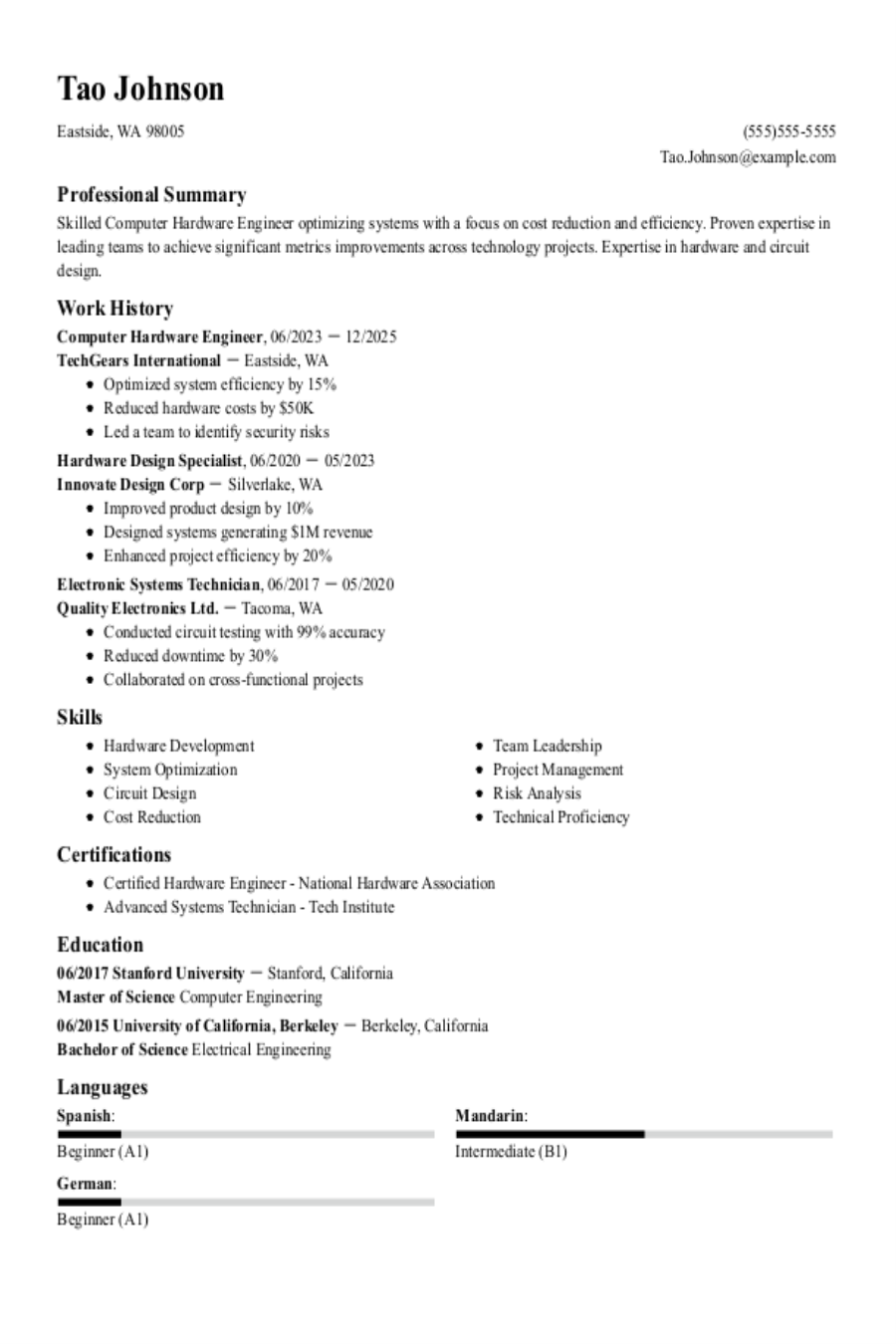You might not be a scientist, an archivist, or an investigative journalist, but odds are research still plays a big role in your workday—even if you don't know it.
Whether it's learning the ins and outs of a new workplace tool, digging deep into data to forecast business trends, or becoming an expert in a new product so you can answer customer questions, the modern professional relies on research skills in hundreds of different and important ways.
But what exactly are research skills, and how can you build a resume that puts them at center stage? Let us help with that! We'll answer your questions so you feel confident and prepared with a resume that truly shows off your research skills.
What you'll discover in this guide:
- A research skills definition to reference when you need help understanding their role on your resume
- Examples of research skills you can put to use on your resume right away
- Practical tips to help you develop your research skills
Need a persuasive resume that showcases your research skills? Try Resume Now's AI Resume Builder. This tool offers tailored content suggestions and formatting tips to help you create an impressive resume in just a few minutes.
What Are Research Skills and Why Are They Important?
Put simply, research skills help you systematically investigate, study, and explore a specific topic, question, or problem. But what does this mean for most workers? Even if you aren't spending your time combing through old newspaper clippings, your work probably involves lots of research skills.
Research skills are the abilities that help you ask insightful questions, contextualize information, think critically, and synthesize what you've learned to form brand-new ideas!
It isn't just about reading up on a topic. A candidate with strong research skills is independent and inventive enough to figure out where to look for answers on their own. Your research skills are deeply connected with your ability to think critically, effectively manage your time, and keep your space and your thoughts organized.
Why do research skills matter on a resume? If you were hiring an employee, wouldn't you want to find someone who has the curiosity, enthusiasm, initiative, and analytical skills to deeply learn new things on the fly?
40+ Research Skills Examples for Your Resume
In this section, we've provided a list of research skills that you can use on your resume to show employers your independent thinking and learning capabilities. We've broken these skills down into several categories to help you understand how they fit under the broader umbrella of research skills.
Information-gathering skills
Most research journeys begin with knowing where to look to get your questions answered. Information-gathering is an important skill that's challenging to teach, so don't be afraid to highlight it on your resume.
Information-gathering skills to help get your research started:
- Online and library research
- Data sourcing
- Independent thinking
- Resourcefulness
- Interviewing techniques
- Observational research
- Information synthesis
- Document analysis
- Use of search engines and databases
- Identifying information gaps
- Developing questionnaires
Analysis skills
Once you've gathered the knowledge you need, the next step is analysis. Information can only get you so far without the critical thinking skills that allow you to contextualize what you've learned and apply logical reasoning to it.
Analysis skills for your resume:
- Data interpretation
- Critical thinking
- Problem-solving
- Contextualization
- Trend analysis
- Synthesis
- Comparative analysis
- Evaluating sources for credibility
- Making informed judgments
- Pattern recognition
- Logical reasoning
- Decision-making
Organizational skills
To learn effectively, you need strong working habits. Showcase your organizational skills to show employers that you can keep track of the data that you're entrusted with.
Organizational skills to emphasize on your resume:
- Planning and organizing
- Time management
- Detail-oriented processes
- Managing deadlines
- Resource coordination
- Prioritization of tasks
- Adherence to guidelines
- Progress monitoring
Communication skills
Finally, the research you do will usually need to be shared with others in one way or another. Learning to communicate well, compose presentations, and collaborate with others is critical to ensuring your research goes as far as it can.
Communication skills for your resume:
- Collaboration
- Active listening
- Clarity
- Summarizing findings
- Report writing
- Presentation skills
- Explaining complex concepts
- Constructive feedback
- Collaborative discussions
- Persuasive communication
- Visual data presentation
How to List Research Skills on Your Resume
Now that you understand the depth of your research skills, let's explore how to add them to your resume to clearly communicate your ability to conduct thorough and effective research.
Step 1
Start by examining the job description
Step one of building any resume is to take a look at the job listing. The job description is your guide to tailoring your resume. Look for the research skills that the employer values in their ideal candidate; these are the keywords you should include in your resume to demonstrate you are the perfect match.
For instance, consider this job listing:
Our ideal candidate for the role of research analyst is someone who can:
- Conduct comprehensive market analysis.
- Synthesize information from diverse sources.
- Develop detailed reports based on findings.
- Work collaboratively across teams to gather data.
The bolded keywords highlight the research skills that are most likely to catch the hiring department's attention for this particular role.
Featuring research skills from the job listing not only aligns you with the requirements of the role and impresses recruiters, but it also improves your resume's chances of passing through applicant tracking systems (ATS).
Step 2
Feature research skills in your skills section
Beyond hard skills specific to your field, your skills section should also display key soft skills that showcase your working habits. This is also an excellent opportunity to highlight some of your most essential research skills. Simply select six to 10 skills that match what the employer is looking for and list them in their own section.
Step 3
Integrate research skills throughout your resume
Your skills section isn't the only place to showcase your research abilities. Your work history is a golden opportunity to demonstrate how you've applied these skills in practical situations.
Consider this example:
Research Analyst
XYZ Corporation, City, State
January 2020 – October 2025
- Conducted in-depth analyses that increased market understanding by 40%.
- Synthesized data from multiple sources to support strategic decision-making.
- Authored comprehensive reports that influenced company policy.
- Collaborated with multiple departments to enhance data collection processes.
Your resume profile also offers a chance to emphasize some of the most critical keywords at the very top of your resume. These are the first research skills that employers will see when they begin reading your resume, so choose those that are most relevant to the role and your expertise.
If you're just starting your career, consider using a functional resume format to feature your research skills prominently, even if you lack extensive work experience.
Step 4
Don't forget to include research skills in your cover letter
Your cover letter is a vital step in the job application process. It allows you to expand on your resume and express your enthusiasm for the role in more specific and personable terms. Here, you can further highlight your research skills by discussing how these abilities have led to significant accomplishments.
For help getting started, look for cover letter examples that effectively showcase robust research skills. Our Cover Letter Generator can also help by providing generated text based on your background and offering professional formatting assistance, ensuring you can complete your cover letter with confidence.
How to Improve Your Research Skills
Research skills are tricky to teach, but not too difficult to develop. It just takes a bit of practice! We'll help you get started with some tips on ways you can improve your research skills little by little, starting right now.
Improve your research skills by:
Keeping an open mind
You never know what answers you'll find once you dive into researching a topic. Get comfortable with accepting what you learn instead of being set on your beliefs and looking to prove them. This will improve your research skills by helping you reflect on what's out there rather than simply seeking to confirm your original theory.
Being organized
In-depth research often means digging through all sorts of sources. It's easy to lose track of where a snippet of information came from, but this is counterproductive. Start your research process with an outline of your sources and the questions you're hoping to answer. Detailed notes will help your research bear fruit.
Relying on the professionals
Not sure where to start developing your research skills? You can always take a more formal approach to learning. Online courses can provide a structured learning approach to help you understand your weaknesses and grow your strengths!
More Skills Resources
Looking for help understanding, improving, or listing a different career skill? Check out our other guides for help making the most out of your resume skills.
- Time management skills
- Employability skills
- Unique skills
- Adaptability skills
- Conceptual skills
- Analytical skills
- People skills
- Leadership skills
- Excel skills
- Networking skills
- Creative thinking skills
- High-income skills
- Decision-making skills
Final Thoughts
Research skills are among the most versatile and valuable abilities you can showcase on your resume. They signal to employers that you can adapt quickly, solve problems, and bring fresh insights to your work—no matter the field.
Beyond your research skills, Resume Now's free AI Skills Section Generator can help you build a robust skills section with a balanced variety of skills. This tool automatically generates a list of skills that you can copy, paste, and use based on your career.
This tool can help you identify a range of research skills to include on your resume, as well as industry-specific skills, subject matter expertise, and transferable abilities that apply to any role.
Don't stop there—check out some resume samples from other professionals in your field to see how your colleagues use research skills to stand out to employers.
Key Takeaways
List research skills on your resume.
Your resume is where you get to illustrate whatever aspects of your career you want employers to see. If you want research skills to shine on your resume, treat each section as an opportunity to display them.
Demonstrate information-gathering skills.
Effective research begins with gathering information. Learn where to find the information you need to start each research project on the right foot.
Showcase analytical thinking.
Information is of no use unless you understand how to read it critically and synthesize it. Show employers that you know what to do with data by displaying your analytical skills.
Communicate your findings.
Collaboration and communication are vital workplace skills that will help you present your research and develop your ideas.
Improve your research skills.
Be organized and open-minded as you put your research skills into practice. Make use of the educational resources available to you to identify areas for improvement and enhance your research skills.
Was this information helpful? Let us know!
Hailey is a career advice writer dedicated to helping job seekers excel in their careers.
More resources

Should You Put a Picture on a Resume?
Including a picture on your resume isn t universally right or ...

20+ High Income Skills to Learn in 2026
Hoping to earn a six-figure salary? Learn some high-income ski...

Deep Focus Is Rare at Work: Less Than 1 in 3 Employees Reach Flow Daily
Resume Now s latest report shows how few workers achieve focus...

Computer Software Resume: Examples & Templates
As a computer software professional your resume should showca...

Computer Hardware Resume: Examples & Templates
As a computer hardware professional you need a resume that sh...

Civil Engineering Resume: Examples & Templates
As a civil engineer your resume must showcase your technical ...
